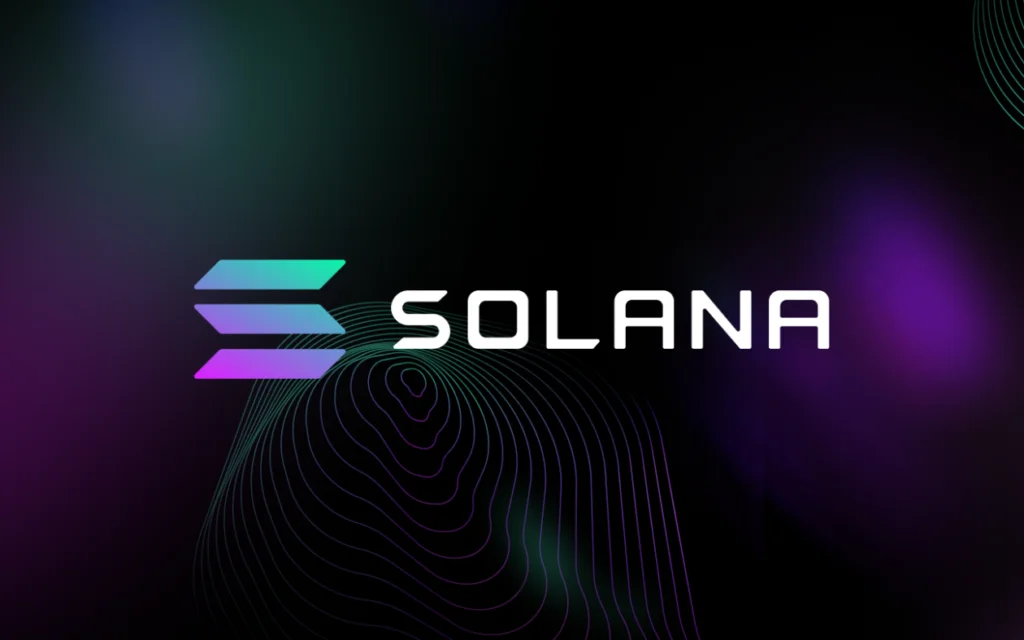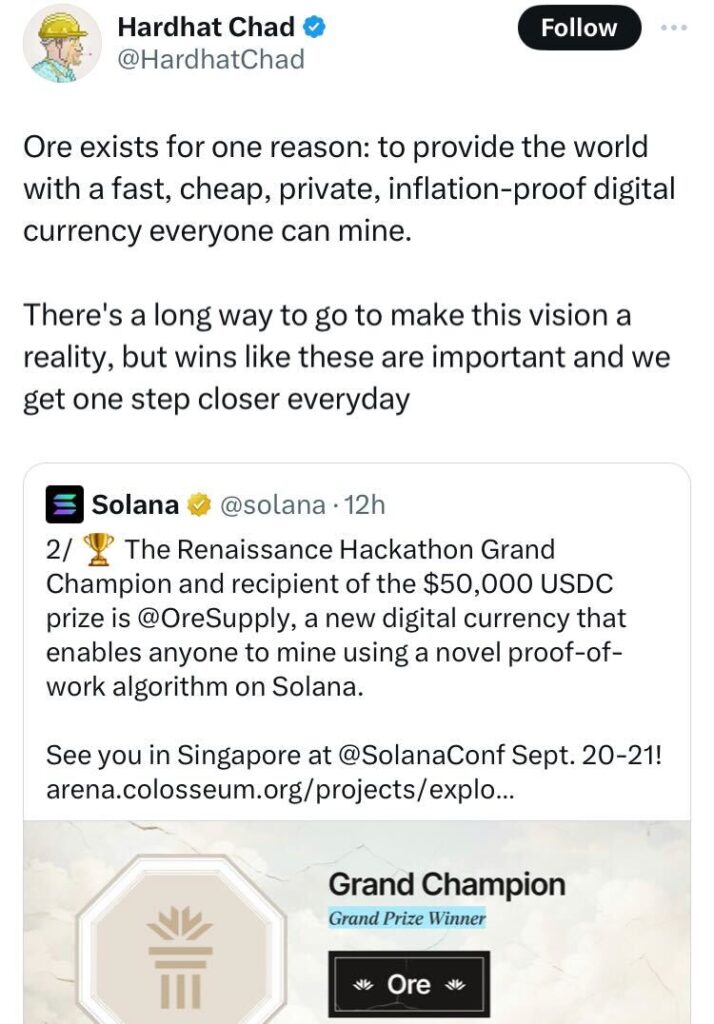A Surge in Ore Mining Transactions led to Solana’s April Congestion, Causing the Rejection of Up to 70% of Non-Vote Transactions.

Although the proof-of-work-powered Solana-native cryptocurrency Ore significantly disrupted the blockchain last month, the team responsible for developing it was awarded the “Grand Prize” at a hackathon supported by the Solana Foundation.
Ore won $50,000 in USD Coin For its participation in the “Solana Renaissance Hackathon” on May 6, which sought to identify the“next wave of high-impact projects.” for Solana.
Nonetheless, the recent memecoin craze and the abrupt increase in Ore mining transactions were two of the primary causes of Solana’s transaction failure issue in mid-April, which resulted in the initial rejection of over 70% of non-vote transaction requests.
According to the Solana Foundation, recent network congestion issues were caused by an untimely implementation of patches about its networking infrastructure and a high demand for Solana block space.
On April 15, Solana developers had intended to implement a patch to alleviate the congestion issue. Despite this, the failure rate of non-vote transactions remains at approximately 62%, per a Dune Analytics dashboard authored by scarn_eth.
Additionally, the Ore team temporarily ceased its mining operations thirteen days after the project’s April 16 launch to optimize the system with a second iteration. Mining activities have seemingly resumed, as per the information provided on Ore’s website.
Hardhat Chad, the fictitious creator of the project, expressed his elation at receiving the honor but acknowledged that “significant progress remains” before he and the Ore team can provide Solana users with a “private, inflation-resistant, instantaneous digital currency that anyone can mine.”

CoinMarketCap reports that the Ore (ORE) token has increased 115% to $270.8 since its victory was declared twelve hours ago.
Hardhat Chat explained in a presentation that while Ore’s codebase is based on Bitcoin, it was written as a Solana smart contract to enable multiple miners to win a portion of the network’s block rewards rather than paying them out to a single miner.
He anticipates that Ore will “revitalize the appeal of mining” by enabling computation to be executed on standard laptops, thereby reducing the entry barrier.
